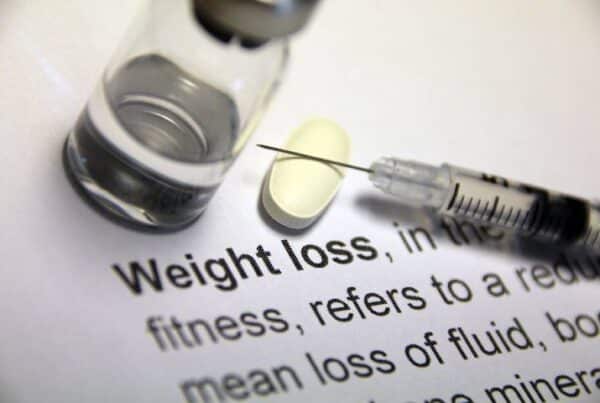If you’ve ever been on a diet, you’ve probably heard of the term “cheat meal”—that glorious moment when you allow yourself to indulge in your favorite foods without guilt. But can cheat meals actually fit into a healthy diet, or are they just an excuse for diet derailment? Let’s break it down and explore the truth behind cheat meals, how to approach them with confidence, and whether they can actually help you stay on track with your goals.
What Exactly Is a Cheat Meal?
A cheat meal is typically one meal (or sometimes a whole day) where you give yourself permission to eat foods that fall outside the typical boundaries of your regular eating plan. For example, if you’re following a low-carb or keto diet, a cheat meal might be pizza or pasta. If you’re on a clean-eating kick, it could be a rich dessert like chocolate cake.
The idea is simple: indulge without guilt, while sticking to healthy eating most of the time.
The Benefits of Cheat Meals
You might think that cheat meals are just a way to eat junk food, but they offer several psychological and physiological benefits when used strategically:
1. Psychological Relief
Constantly restricting yourself can lead to feelings of deprivation and increase the risk of binge eating later. Cheat meals provide a mental break, allowing you to enjoy your favorite foods without feeling like you’re completely breaking the rules. This helps reduce feelings of frustration and makes the process more sustainable in the long run.
2. Boost Metabolism (When Done Right)
Cheat meals can temporarily spike your metabolism. When you eat a larger-than-usual meal, especially one with carbohydrates, it can trigger an increase in leptin levels (a hormone that regulates hunger and fat storage). This increase can help break through plateaus and give your body a metabolism boost.
3. Stay Social
Social situations like family dinners, parties, or dining out with friends can be difficult to navigate while on a restrictive diet. Having a cheat meal allows you to join in on the fun without the stress of feeling left out. This balance between social life and dieting can help you stay committed to your long-term goals without feeling isolated.
How to Approach Cheat Meals Without Guilt
The key to successfully incorporating cheat meals into your diet plan is balance and mindfulness. Here’s how to do it right:
1. Plan Ahead
A cheat meal shouldn’t be spontaneous or out of control. Plan your cheat meal for a specific time and place, and don’t let it turn into a cheat day. If you know you’re going to be at a birthday party, for example, plan to enjoy a slice of cake—but avoid overindulging or having multiple cheat meals in a row.
2. Stay Mindful of Portion Sizes
Cheat meals don’t mean “eat everything in sight.” Be mindful of portion sizes to avoid overeating. Instead of having a large serving of your favorite foods, try savoring small portions to enjoy the taste without overloading your body with excess calories.
3. Get Back on Track Immediately
One cheat meal isn’t an excuse to throw your whole diet out the window. If you go overboard on your cheat meal, it’s important to get back on track right away. A cheat meal should be an isolated event, not a slippery slope into days or weeks of indulgence.
4. Don’t Use Cheat Meals as a Reward System
It’s tempting to think of cheat meals as rewards for eating well, but this can create an unhealthy relationship with food. Instead of using food as a reward, focus on your progress—whether it’s feeling stronger, more energized, or reaching fitness milestones. The goal is to make healthy eating the norm, with cheat meals as a rare but fun indulgence.
5. Make It Healthy (Sometimes)
Not all cheat meals have to be unhealthy. For example, if you’re craving pizza, you can make a healthier version at home with a cauliflower crust, lean protein, and plenty of veggies. You can still enjoy a treat while making it fit within your health goals.
Can Cheat Meals Derail Your Progress?
The answer is: not if you approach them thoughtfully. When incorporated into a balanced diet, cheat meals can actually be a helpful tool in managing cravings and staying on track long-term. However, if you overdo it, cheat meals can easily turn into cheat days or even cheat weeks, leading to unwanted weight gain or a stall in your progress.
The key is moderation. A cheat meal should be just that—a meal. Overindulgence can lead to an imbalance, making it harder to return to your regular eating plan.
The Bottom Line: Enjoy Your Cheat Meal, but Stay Balanced
Cheat meals aren’t the enemy. In fact, when approached in moderation and with mindfulness, they can help make dieting more enjoyable and sustainable. Remember, it’s not about being perfect; it’s about making healthier choices most of the time and allowing yourself the occasional indulgence without guilt.
So, the next time you’re planning a cheat meal, don’t stress. Enjoy it for what it is: a chance to have a little fun with food while still prioritizing your health goals. It’s all about balance—and a healthy diet can definitely include the occasional indulgence!
By making peace with the idea of cheat meals and using them strategically, you can stay on track with your goals while still enjoying life’s little pleasures. Enjoy that pizza, savor that slice of cake—but always remember: one meal doesn’t define your progress. You do!




